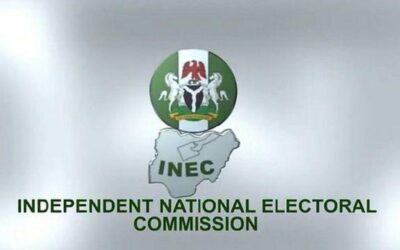Twitter in Ghana: And So What?
Twitter recently announced that it is opening its first African office in Ghana. In an official statement, the company took time to elucidate the reasons for choosing Ghana over other locations.
In their explanation, the social media company said Ghana was prioritised because, “as a champion for democracy, Ghana is a supporter of free speech, online freedom, and the Open Internet, of which Twitter is also an advocate.
“Furthermore, Ghana’s recent appointment to host the Secretariat of the African Continental Free Trade Area aligns with our overarching goal to establish a presence in the region that will support our efforts to improve and tailor our service across Africa.”
The move by Twitter has continued to generate huge debate among Nigerians both at home and in the diaspora. On the one hand, some Nigerians have blamed the Federal Government for Twitter’s decision to site their headquarters in Ghana.
In the words of Elechi Chukwujama, a public analyst, “that we find ourselves in this situation where we have to use Kellogg’s to comfort ourselves for the loss of Twitter shows we are not doing well. We are Africa’s tech hub. We could still have had both Twitter and Kellogg’s investment.
“When an organisation like Twitter cite issues of human rights abuses as one of the reasons for not setting up an establishment in your country, it matters a lot. We can’t gloss over such. Nigeria could have added Twitter to Microsoft, Google, Kellogg’s, and all other FDIs we can claim if we had a focused leadership.”
On the other hand, others consider Twitter’s decision “a welcome development” as it can, among other things, challenge tech experts in Nigeria to think out of the box and come up with a home-grown platform like China.
All facts, surveys and research studies reveal that the numbers in Africa are here. Global digital-insight providers, Data Reportal noted that there were 85.49 million internet users in Nigeria in 2020. The number of internet users in Nigeria increased by 2.2 million (+2.6%) between 2019 and 2020. Internet penetration in Nigeria stood at 42% as of January 2020.
The same report by Data Reportal puts the figure of internet users in Ghana at 14.76 million. The number of internet users in Ghana increased by 1.0 million (+7.5%) between 2019 and 2020. Internet penetration in Ghana stood at 48% in January 2020.
With the number edge, why would Nigeria be crying over the failure of a foreign social media company to locate its African head office here instead of thinking of how it can leverage on her advantages to create a platform that can even rival Twitter? Where are the tech whiz kids, clogging the financial payment space with all sorts of apps? Why can’t they move into the area of social media technology?
If Nigerians are genuinely angry, why not respond with actions that will bring solutions and results? Why are we preoccupied with an investment that will not employ more than 30 people directly at the office? Most of the staff of IT companies work remotely and in the long run, even Nigeria may have more employees because of this fact.
In the words of a public affairs commentator, Uche Nnadozie, “there’s nothing special about twitter choosing Ghana over Nigeria to site their regional headquarters except for ‘PR’ reasons. Yes, there could be a few jobs, trainings, and the feel-good factor; otherwise nothing.”
Read Also: Social Media Influencers in Nigeria: Money, Money, Money
He added that, “it is not an FDI. Twitter is not making any ‘investment’. They are not employing up to 30 people. You don’t need their presence to have a Twitter handle, or advertise there. They don’t build base stations or manage engineers so no big deployment of resources. Oracle and Microsoft are few of the tech companies with offices in Nigeria. How many Nigerians even know they are here? Do you know who works there?”
Besides, Nigeria over the years has been faring well in the area of Foreign Direct Investments (FDI). For the set of Nigerians still mourning the “loss” of Twitter to Ghana, Kellogg’s N6bn factory is near completion in Lagos.
If we are to put it on a value scale, having Kellogg’s N6bn factory is better, bigger and more productive for Nigeria than a Twitter representative office for Africa, where very few hands would be needed. No one can compare the pyramidal effect of a production outfit with so many direct employments, and contribution to the GDP. Apart from this, Nigeria is among the most promising poles of growth in Africa and attracts numerous investors in the sector of hydrocarbon, energy, buildings, etc.
According to the United Nations Conference on Trade and Development (UNCTAD) 2020 World Investment Report, FDI flows to Nigeria amounted to a total of $3.3billion in 2019, showing a 48.5% decrease compared to the previous year (USD 6.4 billion in 2018). The total stock of FDI was estimated at $98.6billion in 2019. Some of the main investment countries in Nigeria include the USA, China, United Kingdom, the Netherlands, and France.
Some of the country’s main advantages are a partially privatised economy, an advantageous taxation system, significant natural resources, and a low cost of labour. Conversely, widespread corruption, political instability, lack of transparency, needless bureaucracy, and poor quality of infrastructure are some of the factors limiting the country’s FDI potential.
In the World Bank’s 2020 edition of doing business report, Nigeria ranked 131st. This represent a leap from the 2019 edition when the country was ranked 146th. The country has improved in many subcategories of the rankings: starting a business, dealing with construction permits, getting electricity, registering property, trading across borders, and enforcing contracts.
Despite all these, Nigerians still believe the country has not maximised her potential in FDI. This should be a big concern.


